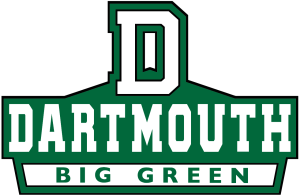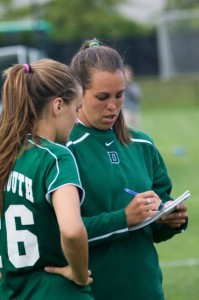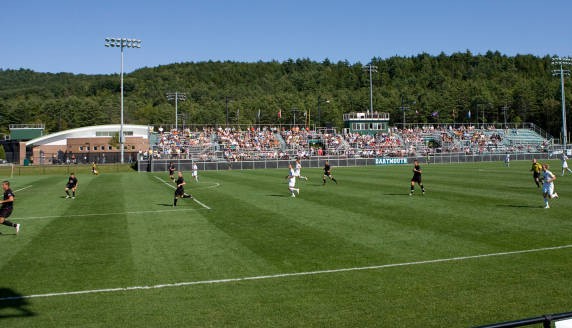What Does Dartmouth Look For in a Soccer Player?
Exclusive Series on What College Coaches Want. Applying to colleges and trying to get identified to play for a prestigious college or university takes time, planning and a strategy for success. SoccerToday interviewed top college coaches and asked the real questions. Every college coach said the same thing; learn everything you can about the college team you want to play for. Show you are interested and contact the coaches you want to play for.
Interview with Coach Kelly Kuss – Dartmout College Assistant Coach/Recruting Director
Top Assistant Coach for the women’s soccer program, Kuss is entering her sixth season on staff with the Big Green women’s soccer program in 2015. Kuss played at Colgate College, where she was named second team All-Patriot League three years, and previously worked as an assistant coach with Amherst College. She has earned her National Diploma and Advanced National Diploma from the National Soccer Coaches Association of America.
 College Information: Dartmouth College
College Information: Dartmouth College
Dartmouth Athletics: Big Green Athletics
Dartmouth at a Glance:
Established 1769
Faculty: About 1000 Tenured/Tenure Track and non-Tenured
Students: 6000, About 4000 undergraduate and 2000 graduate/professional
Diane Scavuzzo: How are you finding Surf Cup this year?
Kelly Kuss: Surf Cup is excellent, as always. It’s great to see players from Southern California and all over the western United States. I’ve been coming to Surf Cup as a youth soccer coach for many, many years.
This is my first year to come as a Women’s Soccer coach at Dartmouth and it has been great.
Diane Scavuzzo: Where were you youth coach?
Kelly Kuss: I coached youth soccer in Northern California, Arizona, Georgia and Florida.
Diane Scavuzzo: How many years did you coach youth soccer?
Kelly Kuss: A long time. About twelve years.
Diane Scavuzzo: Impressive. You have recently become a college coach, what is it like?
Kelly Kuss: Excellent. It’s great to see the end product. I’ve been developing players for years. It’s been great fun for me. And to be able to take it to the next level and be able to identify kids for our college program at Dartmouth is great. I love it.
Diane Scavuzzo: So what are you looking for?
Kelly Kuss: Players that can play well.
Players who are comfortable with the ball. We like players that attack and defend. That’s a big thing — to be able to defend at the next level.
Also I am looking for players that can score goals, everybody is looking for that. But Dartmouth looks for special players; players that do something that is special on the field, something that is different, whether it’s dribbling, whether it’s heading, or scoring goals. Players that really shine.

Diane Scavuzzo: How often do you watch a player on the field before you approach them? How often do you see a player before wanting to discuss their coming to play for you?
Kelly Kuss: As an assistant coach, I’m in charge of all of our recruiting. I usually see a player at least at two events before identifying them. Depending how old they are, I start communication directly with them or if they are younger, through their coaches.
Diane Scavuzzo: What age are you really looking at?
Kelly Kuss: For us, we’re a mid-major college. We are identifying 2013s right now, so we are looking at rising juniors.
Diane Scavuzzo: So if there is a sophomore out there who is just in love with your school and they want to come play for you, what should they do?
Kelly Kuss: If they are good, they may be on our radar already. If a player wants to attend Dartmouth and play soccer on our college team, they should reach out and contact us. We love to hear from kids.
It’s important that as a youth player you write college coaches. You let them know your schedule, you let them know where you’re going to be, and you give them as much information about yourself as you possibly can.
Players should continue to contact us so we know they are interested in our program.
Especially as a young player, because colleges are not able to call a kid or write an email to a young player. So it is very important the player take initiative.
Diane Scavuzzo: How old should a player be when he first reaches out to a college coach?
Kelly Kuss: I think a freshman in high school should start the process.
It’s a learning process. Students have to discover and learn what they like about a university.
Diane Scavuzzo: What role do you think the club plays in recruiting colleges? A lot of competitive youth soccer clubs tell parents and players, “We’ll help you find a scholarship or a college,” but parents are often confused.
Unless their kid is the number one or two player on the team, parents are concerned if they’re going to get the club’s support and attention. I would like your perspective.
Kelly Kuss: I think, personally, other people may disagree, but I think the club has a huge role. Not necessarily in recruiting college coaches, but educating players and educating parents about the process.
Clubs play a big role in showing competitive youth players what they need to do to play soccer in college. Youth coaches and Directors of Co
|
It’s important that youth players write to college coaches. Players who want to attend Dartmouth should let us know their schedule; where they are playing and when. Especially young players, because colleges are not able to call a kid or write an email to a young player. It is very important the player take initiative. |
aching often guide players on how to select colleges and help their players learn how to write to college coaches.
Diane Scavuzzo: You are referring to setting realistic and appropriate expectations for the player and family?
Kelly Kuss: Absolutely.
Diane Scavuzzo: Because the youth clubs know the player and have a good idea of where the players will be successful?
Kelly Kuss: Correct.
Diane Scavuzzo: What tips can you give our readers?
Kelly Kuss: I think the key for players, especially as we look at young players, is consistency. At every event, be consistent. Be consistent.
Diane Scavuzzo: I also hear from coaches that people are looking at how players are handling disappointment, what their attitude is and how they’re acting off the field.
Kelly Kuss: Absolutely. It’s always great to have players who are positive and fun when the team wins a game, but how do they respond potentially to disappointment?
Coaches aren’t necessarily looking at results when they’re identifying players. We’re looking to see what a player does to impact a game. How you deal with pressure when you’re being squeezed, how you deal with it when your coach is yelling at you or your parents are yelling at you on the sidelines.
What do you do – do you roll your eyes at them? How do you respond? How do you respond when you’re winning?
Diane Scavuzzo: What kind of response do you admire?
Kelly Kuss: Hard work, determination. Those are my favorite.
Diane Scavuzzo: And what is most important? Tactical or technical skills? Athleticism? How do you evaluate a player?
Kelly Kuss: Depending on the level of your program, for me it’s important to have a player that can play and is very comfortable with the ball at their feet and then has an idea how to solve problems. And then, if you’re an athlete on top of that, that’s a bonus.






